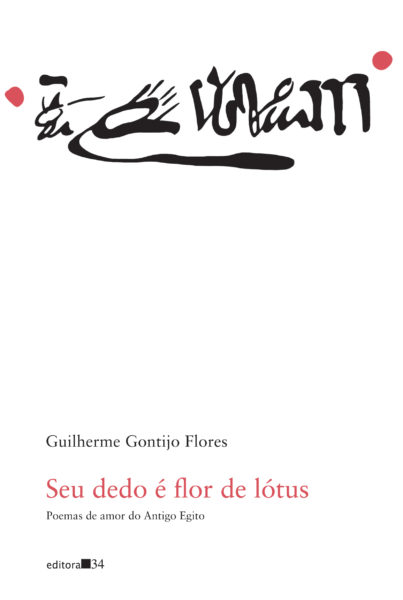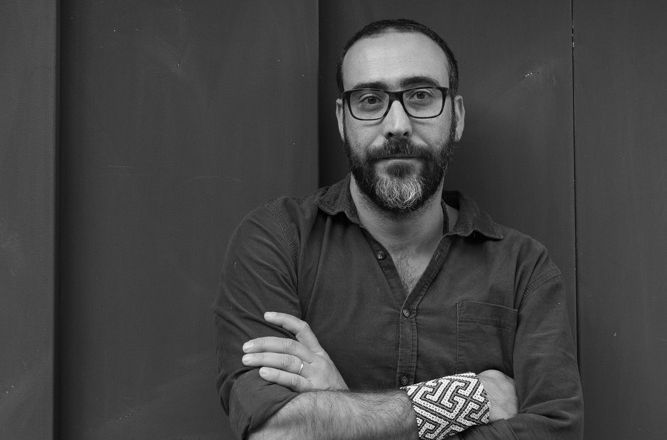São Paulo – Seu dedo é flor de lótus [loosely translated as Your Finger Is a Lotus Flower] is the most recent release by Brazilian poet, translator and novelist Guilherme Gontijo Flores (pictured above). In this poetry collection, Flores uses the translation of hieroglyphs from the Middle Kingdom of Egypt – that lasted from approximately 2000 to 1750 BC – to write his own love verses in “21st-century Brazilian Portuguese,” as he puts it. The book is a result from his long-standing interest in the poetry of ancient Egypt and took years of research from one project to the next. The author used various translations of poems from ancient Egypt into Portuguese, Spanish, German, French and Italian, in addition to studying the hieroglyphic signs to write his own free interpretation.
Flores is the author of poetry collection Brasa enganosa [Misleading Ember] (Patuá, 2013) and novel História de Joia [Story of Jewel] (Todavia, 2019). He has translated into Portuguese elegies by Sextus Propertius (Autêntica, 2014), Fragments of Sappho (Editora 34, 2017), and Gargantua and Pantagruel (Editora 34, 2021) throughout a literary career that includes other poems and organization of anthologies, besides the children’s book A mancha [The Spot] (FTD, 2020).

“What led me to these poems was a passion for them. As I say in the afterword, my first reading of these love poems overwhelmed me some 20 years ago, and I started to always come back to them, with a desire to make them mine in the sense that I could give them an emotional vibrance when I write original poetry,” Flores told ANBA, adding that these poems are dedicated to his wife, who was still his girlfriend when he was first exposed to the poems.
Throughout the book, you find poems that speak of love, erotism and marriage using references to religious beliefs from ancient Egypt based on both the literal and figurative meaning of elements that were common to that society: The spices, the tomb, the animals, the fabrics, but also the suffering of slaves. These are some of the elements of the verses.
“For me, it was a double challenge to understand the culture, the language, and then recreate in a stretched way a poetic model that’s different from the Greek, the Roman, and is actually more similar to the Arabic and Semitic poetries in general, so a major part of these poems also remind the Songs of Songs. Therefore, I sought to create a singularity in this love poetry but bearing in mind that I was making them for the present, to be read in 2023,” he says.
Quick facts
Seu dedo é flor de lótus
Guilherme Gontijo Flores
176 p.
Editora 34
BRL 62.00
Translated by Guilherme Miranda




